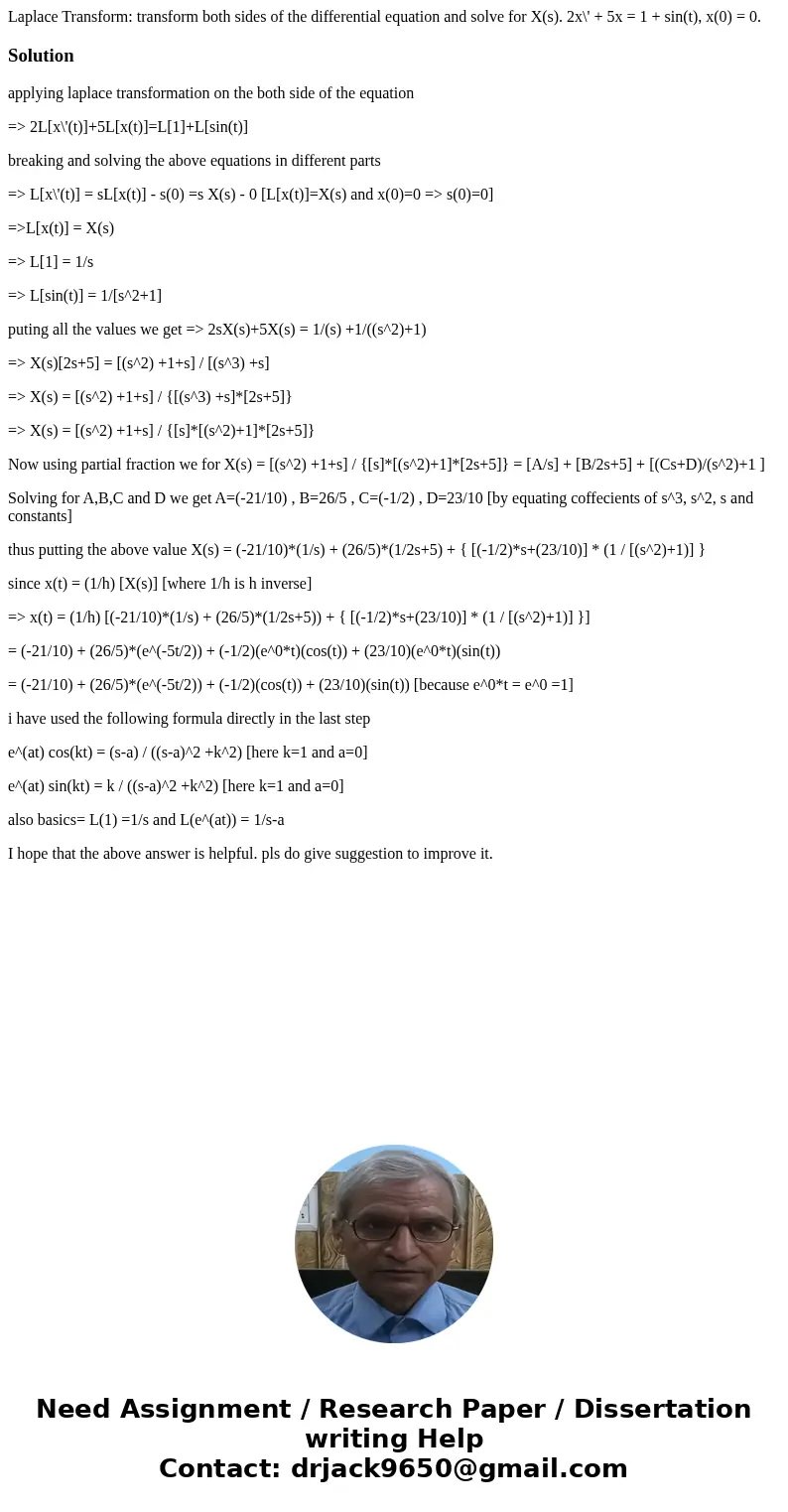Laplace Transform transform both sides of the differential e
Laplace Transform: transform both sides of the differential equation and solve for X(s). 2x\' + 5x = 1 + sin(t), x(0) = 0.
Solution
applying laplace transformation on the both side of the equation
=> 2L[x\'(t)]+5L[x(t)]=L[1]+L[sin(t)]
breaking and solving the above equations in different parts
=> L[x\'(t)] = sL[x(t)] - s(0) =s X(s) - 0 [L[x(t)]=X(s) and x(0)=0 => s(0)=0]
=>L[x(t)] = X(s)
=> L[1] = 1/s
=> L[sin(t)] = 1/[s^2+1]
puting all the values we get => 2sX(s)+5X(s) = 1/(s) +1/((s^2)+1)
=> X(s)[2s+5] = [(s^2) +1+s] / [(s^3) +s]
=> X(s) = [(s^2) +1+s] / {[(s^3) +s]*[2s+5]}
=> X(s) = [(s^2) +1+s] / {[s]*[(s^2)+1]*[2s+5]}
Now using partial fraction we for X(s) = [(s^2) +1+s] / {[s]*[(s^2)+1]*[2s+5]} = [A/s] + [B/2s+5] + [(Cs+D)/(s^2)+1 ]
Solving for A,B,C and D we get A=(-21/10) , B=26/5 , C=(-1/2) , D=23/10 [by equating coffecients of s^3, s^2, s and constants]
thus putting the above value X(s) = (-21/10)*(1/s) + (26/5)*(1/2s+5) + { [(-1/2)*s+(23/10)] * (1 / [(s^2)+1)] }
since x(t) = (1/h) [X(s)] [where 1/h is h inverse]
=> x(t) = (1/h) [(-21/10)*(1/s) + (26/5)*(1/2s+5)) + { [(-1/2)*s+(23/10)] * (1 / [(s^2)+1)] }]
= (-21/10) + (26/5)*(e^(-5t/2)) + (-1/2)(e^0*t)(cos(t)) + (23/10)(e^0*t)(sin(t))
= (-21/10) + (26/5)*(e^(-5t/2)) + (-1/2)(cos(t)) + (23/10)(sin(t)) [because e^0*t = e^0 =1]
i have used the following formula directly in the last step
e^(at) cos(kt) = (s-a) / ((s-a)^2 +k^2) [here k=1 and a=0]
e^(at) sin(kt) = k / ((s-a)^2 +k^2) [here k=1 and a=0]
also basics= L(1) =1/s and L(e^(at)) = 1/s-a
I hope that the above answer is helpful. pls do give suggestion to improve it.

 Homework Sourse
Homework Sourse